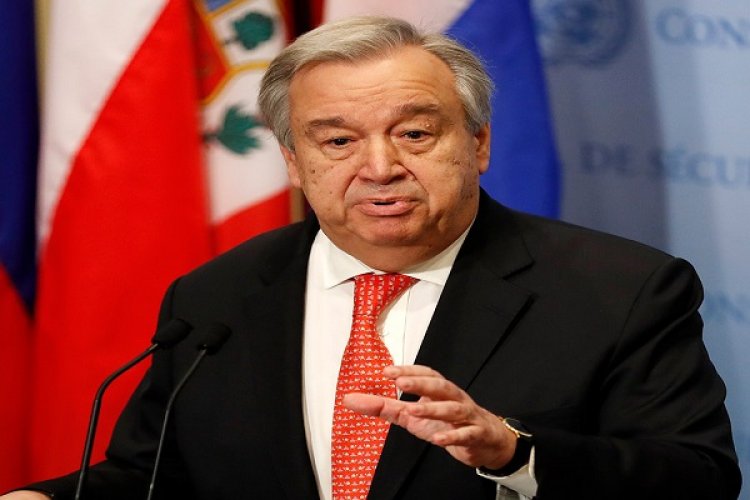«$40 billion» needs of developing countries to adapt to climate change
The Secretary-General of the United Nations, Antonio Guterres spoke during climate conference in Sharm El-Sheikh. He called for the adoption of a roadmap to deliver the $40 billion climate change adaptation aid pledged by rich countries to developing countries during the Glasgow Climate Conference (COP26) by 2025.

· $300 billion for climate needs
At the same time, he warned that the needs for adaptation to climate change will rise to more than $300 billion annually by 2030.
Guterres said that we urgently need to make progress in adaptation to climate change, and that half of climate finance at the international level should be allocated to plans to adapt to climate change, pointing out that about three and a half billion people are exposed to the risks of these changes.
Guterres called on international multilateral financial institutions and banks to amend their plans, to contribute effectively to financing adaptation plans to climate change, and to support private financing to invest heavily in measures to address climate change. He added that countries and societies must be able to access this financing and set priorities. warning that the devastating effects of climate change remain.
· high gas emissions
Guterres continued that the United Nations Climate Conference in Sharm El-Sheikh reminds us that time is passing, and that we are in challenge with ourselves, warning that we will lose if emissions of gases and temperatures continue to rise, and that our planet will then approach the point of no return in what he described as "climate chaos."
Guterres pointed out that although the war in Ukraine, the conflict in the Sahel-Saharan region and the violence and instability prevailing in a large number of regions of the world constitute terrible disasters affecting our world today, climate change is the biggest challenge for our planet in the current century, and that ignoring it has become Unacceptable.
· use of fossil fuels
He pointed out that many of the current conflicts are linked to the growing climate chaos, noting that the war in Ukraine demonstrated the great risks involved in the use of fossil fuels.
Guterres considered that the urgent crises of today cannot be considered a justification for reversing the repercussions of climate change, but must be used as a motive to move forward in taking strong and effective measures in the face of these repercussions.
Human activity is the cause of the climate change problem
He stressed that human activity is a major cause of the problem of climate change, but human action must be the solution, to rebuild trust between the countries of the North and the South, He added that science has made it very clear that any hope to reduce the global warming by a degree and a half means reaching “zero emissions” by 2050, warning that reaching this goal is becoming increasingly difficult, which in turn will bring it dangerously close to the point of no return.
· Reducing gas emissions
The Secretary-General of the United Nations stressed that to avoid this fateful fate, the G20 countries must accelerate the processes of radically reducing gas emissions during the current decade, and these countries should take the lead, noting that emerging economies must also play an important role in the commitment at the target rate of emissions.
He explained that he called during the Glasgow conference to provide support to emerging economies to accelerate the transition from coal to renewable energy, and that progress can be achieved in this regard through partnerships between emerging economies and major countries in the field of renewable energy.
Guterres added that for this reason, he called for a historic solidarity agreement between developed countries and emerging economies, to reduce emissions during the current decade in line with the goal of "one and a half degrees Celsius."
He pointed out that the targeted agreement should include the provision of financial and technological assistance by rich countries and international financial institutions to support the efforts of countries with emerging economies to accelerate the transition towards developing new energy sources and ending dependence on fossil fuels and coal.
Guterres said that the targeted agreement should also contribute to providing sustainable and global energy at affordable prices, which would make developed countries and emerging economies unite behind a unified strategy, mobilizing their capabilities and resources for the benefit of all humanity.
Guterres also called for providing financial assistance to people suffering from the repercussions of high food and energy prices and losses resulting from climate crises, stressing the need to adopt a specific roadmap to address these challenges, and to approve effective institutional arrangements for financing during the current climate conference in Sharm El Sheikh.















